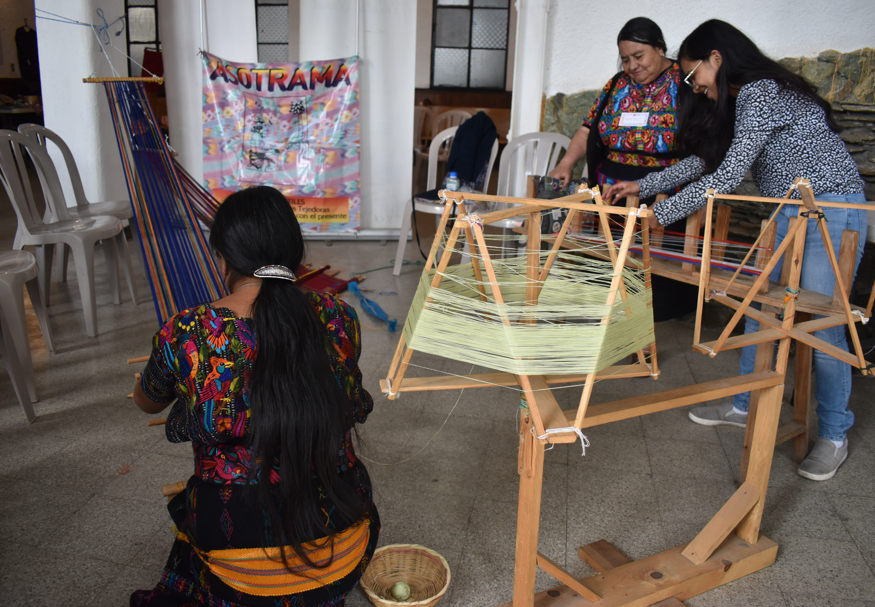
International Indigenous Peoples Day, Xela 2024
Share
Indigenous Peoples Day, observed annually on August 9th, is a meaningful occasion dedicated to honouring Indigenous communities and celebrating their rich cultures. In Guatemala, where Indigenous peoples are predominantly of Mayan descent and represent about half of the national population, this day is particularly significant. The Maya people are spread across the country, with a notable presence in the remote western highlands. This day not only celebrates their heritage but also acknowledges the historical struggles they have endured. In Guatemala, the legacies of colonisation, civil conflict, and global interventions have contributed to a persistent cycle of poverty for many Indigenous communities. Indigenous Peoples Day serves as a time to reflect on these challenges and to advocate for the recognition and respect of their enduring resilience and contributions.
Trama Textiles, a vibrant cooperative led by Maya women Amparo Rubio and Oralia Chopen, holds Indigenous Peoples Day in great importance. This celebration is central to their mission, embodying their commitment to preserving and promoting Maya heritage. Trama Textiles showcased their dedication through engaging demonstrations and workshops aimed at reconnecting local indigenous people with their cultural roots while also introducing Guatemala's rich indigenous heritage to a local and international audience.

This year, a variety of community groups made their mark: the French Alliance captivated audiences with a reading of The Little Prince in French and K'iche' (one of the many Maya languages), the Miriam Association delivered an insightful talk on preventing domestic violence, and local young musicians dazzled with performances of jazz and contemporary music.


Guatemala's history from the 1960s until 1996 was plagued by a devastating civil war, driven by a brutal agenda of ethnic cleansing and foreign exploitation. During this conflict, indigenous communities bore the brunt of the violence, suffering 83% of the casualties. The years of war and brutality left many communities with a significant loss of their male workforce. Because of this, women had to step up and support their families and communities, utilising their traditional textile skills.
The resilience of these women is remarkable, especially given the historical challenges they faced. For over 500 years, indigenous culture and textiles in Guatemala have faced systemic oppression, starting with Spanish colonisation and continuing through the country's post-independence era. The structural racism and fear of cultural persecution led many mothers to withhold weaving practices from their daughters and abandon traditional dress. This disruption in the transmission of weaving skills resulted in a blending of regional styles, though many distinctive styles with unique symbols and meanings continue to thrive.
These years have often left indigenous communities feeling disconnected and stripped of their identity. In combating these forces, the significance of traditional practices and maintaining a link to one's heritage cannot be overstated. Wearing traditional dress serves as a powerful act of self-empowerment and a bold declaration that their culture will endure and be remembered.

Engaging in the art of crafting these garments fosters an even deeper connection to the culture, as participants engage in a tradition that has been handed down for over 2,000 years. While Maya culture is celebrated daily in Xela, it is crucial for people to come together annually and give time to the immense history of the indigenous people in Guatemala.
Remembering past atrocities, honouring those who persevered, and celebrating the enduring beauty of Guatemala’s indigenous peoples is both an enriching practice and a crucial step toward healing deep-seated traumas. It was a joy for Trama Textiles to participate in this year's International Indigenous peoples day in Xela.
We encourage your continuous support of Trama Textiles through purchasing our fair trade products and donating to our Almaya foundation. This support helps with our meaningful work and has real life impacts on our communities.
Article Written by: Benny Holloway
Photos by: Cristian Estuardo Bucup
